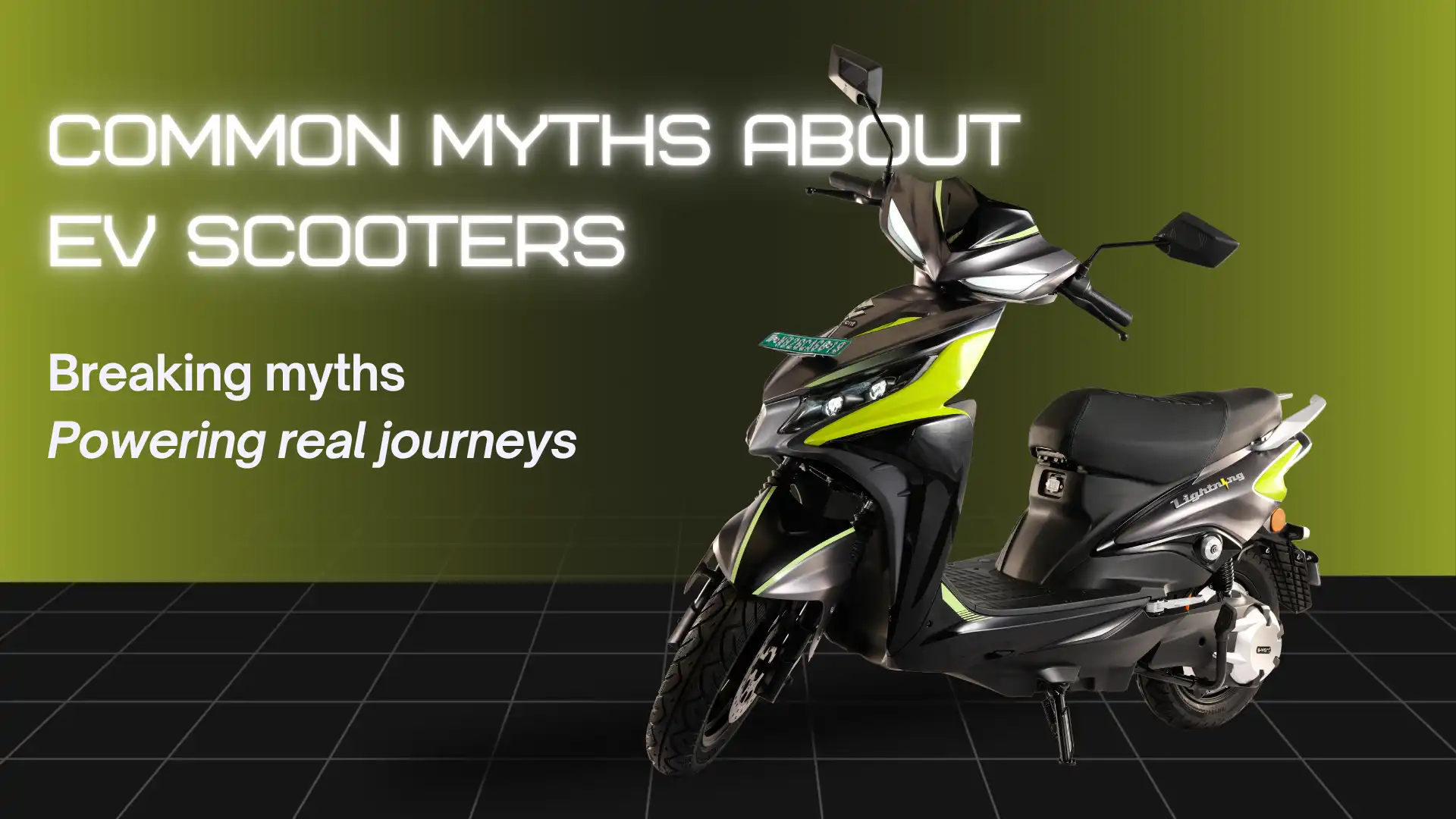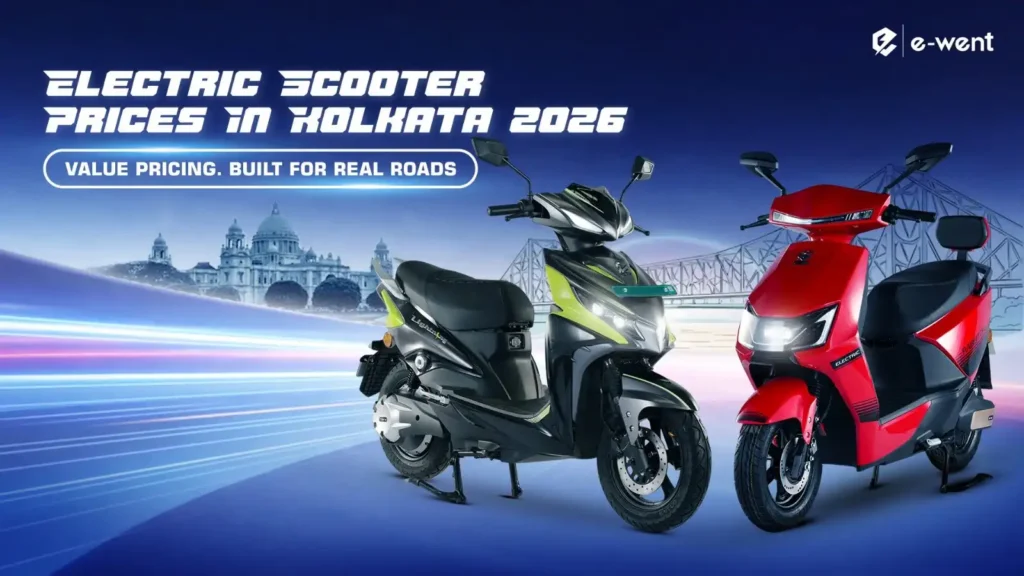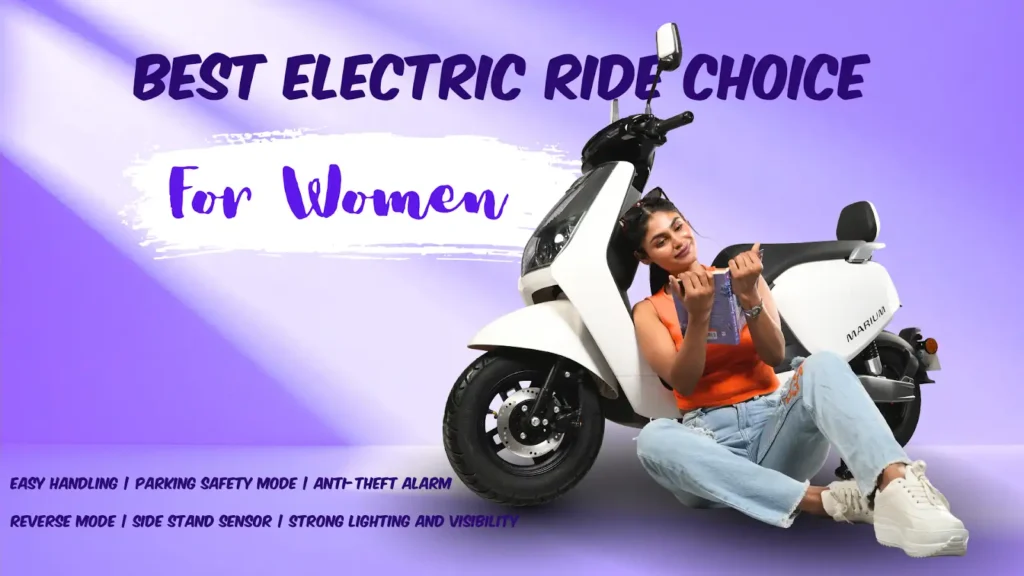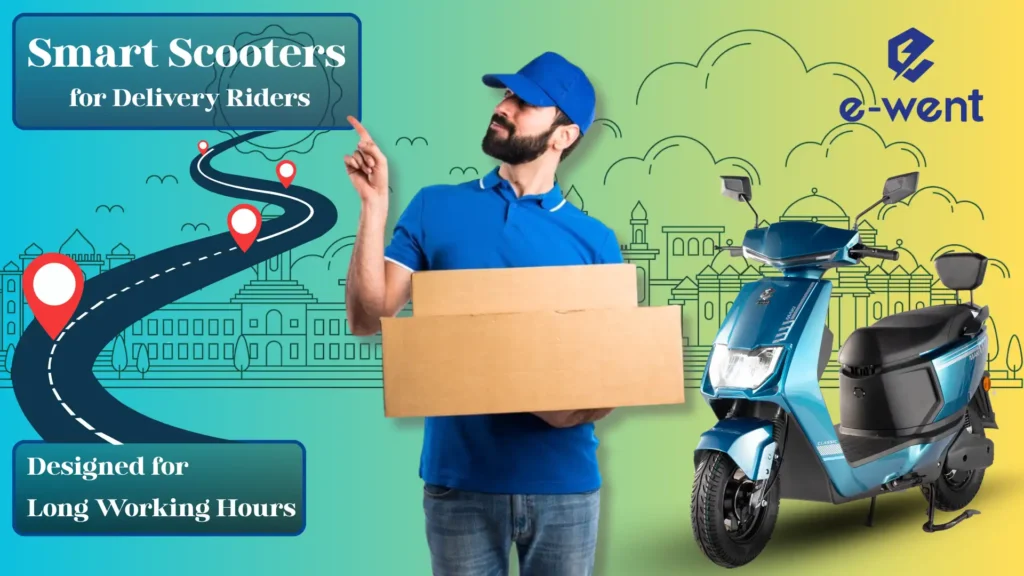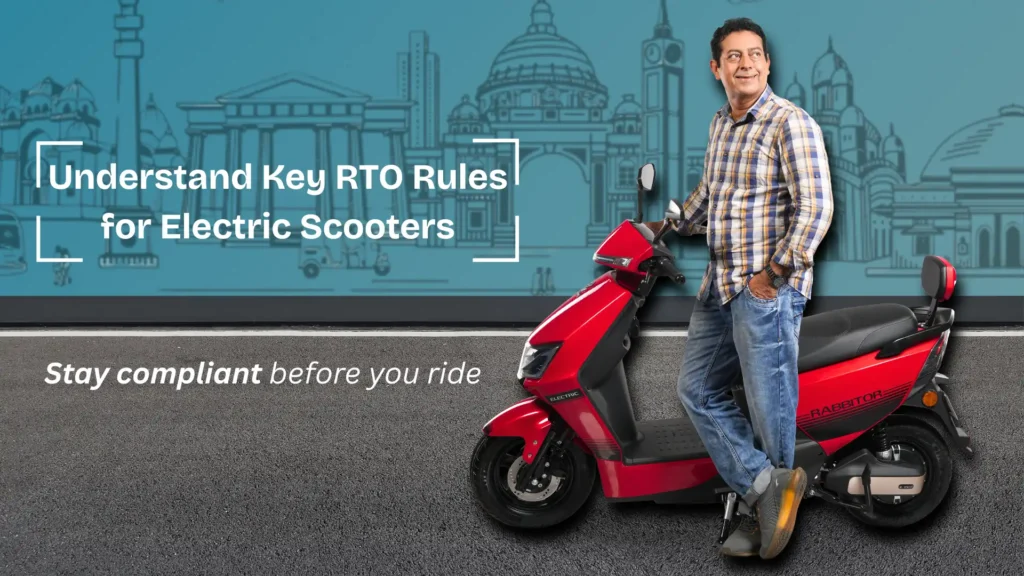When you start exploring electric two-wheelers, you’ll quickly find a mix of facts, opinions, and myths. With India’s electric two-wheeler market growing by 20% to 1.2 million units in FY2025 (as per JMK Research & Analytics Private Limited), EV scooters are no longer a niche choice. They are a mainstream reality. Yet, misconceptions still hold many people back. Let’s look at common electric scooter myths vs. facts.
Electric Scooters Myths and Facts
Myth 1: EV Scooters don’t go far Enough
A typical myth is that EV scooters can’t handle daily travel. The truth is that any modern model comfortably delivers over 100 km per charge. Unless you’re commuting long distances daily, range won’t be a problem. When you check EV Scooters reviews, you’ll notice that most owners highlight dependable performance and easy charging routines. Charging overnight at home is as simple as plugging in your phone, and most daily rides only use a fraction of the battery.
Myth 2: Charging is Time-Consuming and Inconvenient
Another popular belief is that charging an electric scooter takes forever or that you’ll struggle to find a station. However, with fast-charging options and growing public charging networks, the process is quick and easy. In many cases, plugging in for a few hours gives you enough range for several days. Once you get used to the habit, it feels far more convenient than visiting petrol stations regularly.
Myth 3: EV Scooters are Slow and Weak
Some people assume that EV scooters are sluggish compared to petrol bikes. A high-speed electric scooter can reach 80–100 km/h, depending on the model. Electric motors deliver instant torque, making acceleration smooth and quick. Whether you’re navigating traffic or cruising on open roads, you’ll find that modern EV scooters hold their own. They are designed for performance, not compromise.
Myth 4: They are Expensive to Maintain
Another misconception is that owning an EV scooter costs more in the long run. While the initial price may seem higher, the overall ownership cost tells a different story. Electricity is cheaper than petrol, and EVs have fewer moving parts. Hence, you save on servicing, oil changes, and regular wear and tear. Comparing the pros of EV scooters with petrol models shows clear long-term value and smoother, cleaner rides.
Myth 5: EV Scooters aren’t Safe or Reliable
Safety is often questioned when it comes to electric vehicles. But EV scooters undergo rigorous testing before they hit the market. They are equipped with smart braking systems, anti-theft alerts, and advanced battery management. Following standard safety guidelines of electric scooters, such as wearing a helmet, checking tyre pressure, and servicing regularly, keeps you as safe as you’d be on any petrol scooter.
Myth 6: They are Just a Passing Trend
People often dismiss EV scooters as a temporary fad, but that myth is fading fast. Government incentives, improved infrastructure, and eco-awareness are fuelling consistent growth. The Future of EV Scooters looks bright, with better batteries, faster charging, and broader availability on the horizon. Far from being a fleeting trend, electric scooters are redefining urban transport and paving the way for a sustainable future.
Myth 7: Petrol Scooters Perform Better
The “EV scooters vs traditional scooters” debate is ongoing, but the gap has closed significantly. Traditional scooters might offer familiarity, but EVs bring lower running costs, smoother rides, and zero emissions. While petrol bikes depend on rising fuel prices, EV scooters promise long-term affordability and cleaner performance.
Conclusion
The shift to EV scooters is fast becoming a hallmark of embracing a smarter, cleaner way of living. They are fast, efficient, and surprisingly affordable to run. So if you’ve been hesitant, now’s the time to look beyond the myths and experience the truth yourself.
FAQs
Do EV scooters need a special charger?
No, most can charge from a regular household socket. Fast chargers are optional but convenient.
How long does the battery usually last?
Typically, between 3 to 5 years, depending on your usage and maintenance habits.
Are EV scooters suitable for long rides?
Yes, high-range models can handle extended rides comfortably with proper planning.
Is the resale value improving for EV scooters?
Yes, as demand grows and awareness increases, resale values are becoming more stable.

